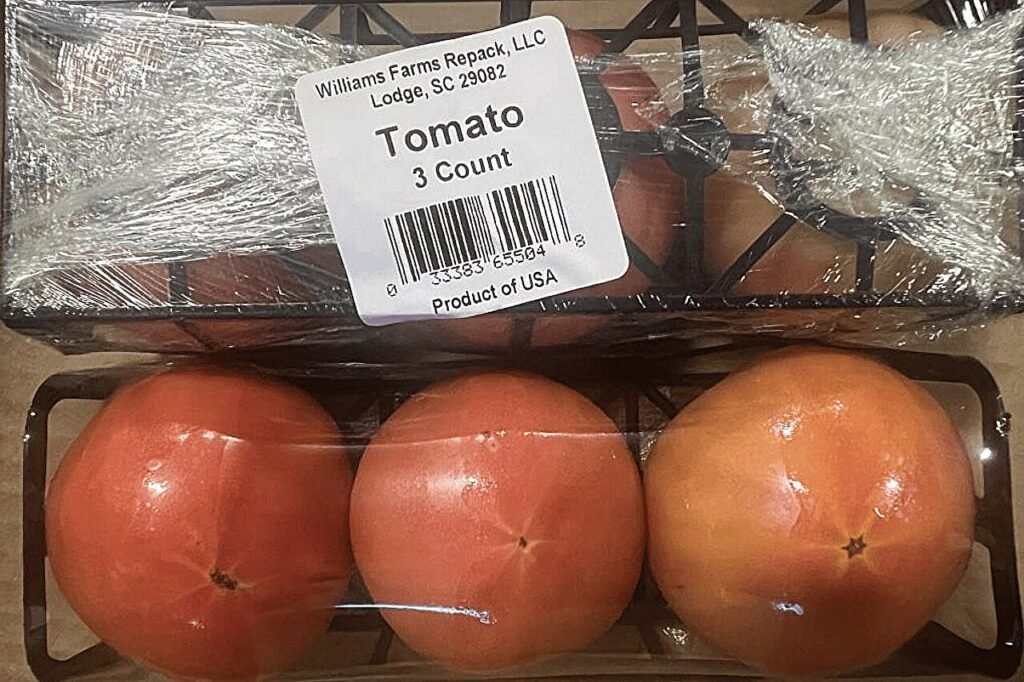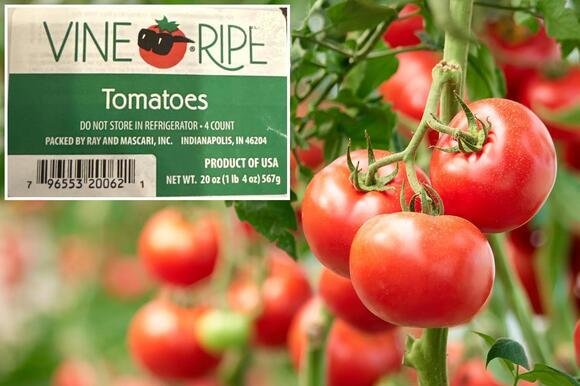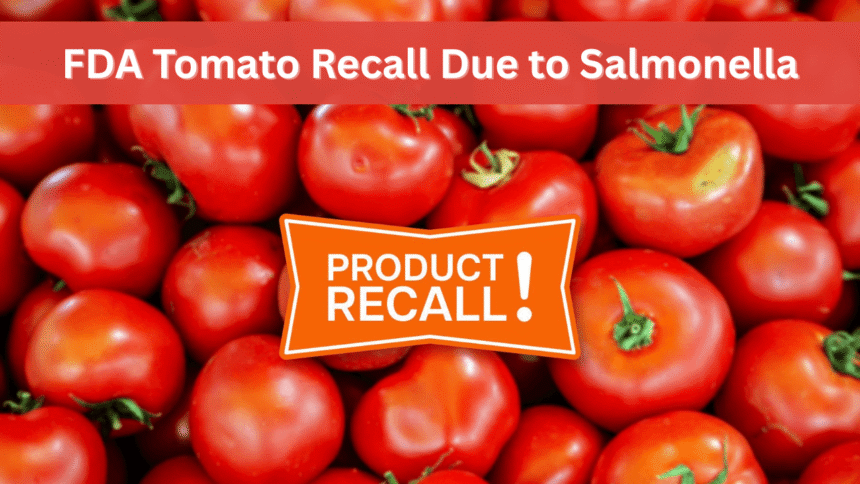The U.S. Food and Drug Administration (FDA) has elevated the ongoing tomato recall to a Class I alert—its most serious classification—after detecting a potential salmonella contamination that could cause severe health issues or even death. The affected tomatoes, distributed across multiple southeastern states, have been linked to a possible outbreak that is under active investigation.
According to the FDA, the recall specifically targets tomatoes packed and shipped by Williams Farms Repack LLC between April 23 and April 28, 2025. These products were distributed to retail stores and foodservice locations in Georgia, North Carolina, and South Carolina. Health officials are urging consumers, restaurants, and grocery stores to immediately dispose of the recalled tomatoes and stay alert for any symptoms of foodborne illness.
What Is a Class I Recall and Why It Matters
Class I recalls are issued when there is a reasonable probability that the use of or exposure to a product will cause serious adverse health consequences or death. The FDA Tomato Recall now falls under this category due to the confirmed presence of Salmonella Braenderup, a strain of salmonella known for causing severe gastrointestinal illness.
The FDA made the decision to escalate the alert after routine sampling identified the bacteria in product testing. The agency has since launched a trace-back investigation to determine the full extent of the contamination and whether additional lots of tomatoes may also be affected.
Understanding the Health Risk of Salmonella

Salmonella is a group of bacteria that can cause a range of health issues, from mild stomach upset to life-threatening infections, especially in vulnerable populations like infants, elderly people, and those with weakened immune systems. Symptoms typically appear between 6 hours to 6 days after ingestion and may include:
- Fever
- Diarrhea (which may be bloody)
- Nausea
- Vomiting
- Abdominal cramps
In more serious cases, the infection can spread from the intestines to the bloodstream and then to other parts of the body. Without prompt treatment, it can result in severe illness or even death.
Dr. Megan Holloway, an epidemiologist at the CDC, explained, “We’re particularly concerned about fresh produce like tomatoes because they’re often consumed raw. Without cooking to kill bacteria, the risk of transmission is higher.”
Distribution Map and Retail Impact
According to the FDA and Williams Farms Repack LLC, the tomatoes in question were primarily sold in bulk, without individual packaging. This has made it difficult for consumers to identify whether the tomatoes they purchased are part of the recall. The FDA recommends discarding any tomatoes purchased from affected regions during the timeframe in question.
States impacted by the distribution of recalled tomatoes include:
- Georgia
- North Carolina
- South Carolina
Some food retailers in these states have already removed affected products from shelves, while foodservice vendors have been alerted to halt use of the product immediately. Additional states may be added to the list as the investigation unfolds.
FDA Tomato Recall: What Consumers Should Do

If you live in one of the impacted areas and recently bought tomatoes, take the following steps to protect yourself and your family:
- Check with the retailer: If you remember where you bought the tomatoes, ask whether that store received any of the affected shipments.
- Err on the side of caution: If you cannot confirm the origin of your tomatoes, it’s best to dispose of them.
- Monitor for symptoms: If you experience symptoms of salmonella infection, contact a healthcare provider immediately.
- Clean contaminated surfaces: Wash cutting boards, countertops, and utensils that may have come into contact with the tomatoes using hot, soapy water.
This FDA Tomato Recall is a reminder of the importance of food safety protocols and personal vigilance when handling fresh produce.
Food Safety Measures and Preventive Actions
The FDA, in collaboration with the Centers for Disease Control and Prevention (CDC), is continuing its investigation to ensure that the source of the contamination is contained. This includes:
- Tracing shipments back to the farm level
- Conducting environmental testing at packaging facilities
- Inspecting supply chain practices for sanitation and compliance
- Working with grocery chains and restaurants to identify and remove potentially contaminated products
Consumers are also reminded to follow basic food safety guidelines. Always wash fruits and vegetables under running water before eating. Avoid cross-contamination by using separate cutting boards for produce and raw meats. Lastly, store produce at the correct temperature to slow bacterial growth.
If you’re interested in health-conscious food choices beyond human consumption, check out the wellhealthorganic organic pet food benefits for your pets.
Economic and Industry Impacts
The recall may also have a ripple effect on regional agriculture and produce distribution. Williams Farms Repack LLC, the primary company named in the recall, is a major supplier of tomatoes across the southeastern U.S. As a result, there may be temporary shortages or higher prices in local markets.
Food industry analyst Jordan Gates notes, “This kind of Class I recall is not just a health issue but also a supply chain shock. Wholesalers and retailers have to react quickly to protect consumers and limit liability.”
While some companies are seeking alternative suppliers to avoid disruption, smaller grocers might face more significant challenges due to limited sourcing options.
The Road Ahead
The FDA Tomato Recall serves as a wake-up call for both the food industry and consumers. Although the FDA and CDC have acted quickly, it may take weeks or even months to complete a full investigation and ensure the supply chain is secure.
In the meantime, the FDA has set up a consumer hotline and continues to publish updates on its website and social media platforms. Health officials are encouraging consumers to stay informed and to sign up for recall alerts via the FDA’s official channels.
As the situation continues to develop, the escalation of this tomato recall to Class I status serves as a serious warning about the vulnerabilities in the fresh produce supply chain. The FDA Tomato Recall is not just a temporary setback—it’s a stark reminder of the real dangers of foodborne pathogens. Consumers, suppliers, and retailers alike must prioritize safety and transparency moving forward. Stay informed, stay cautious, and prioritize health above convenience.
For readers managing their diet during food recalls, it’s worth noting that moringa powder can assist you with control glucose level.”

